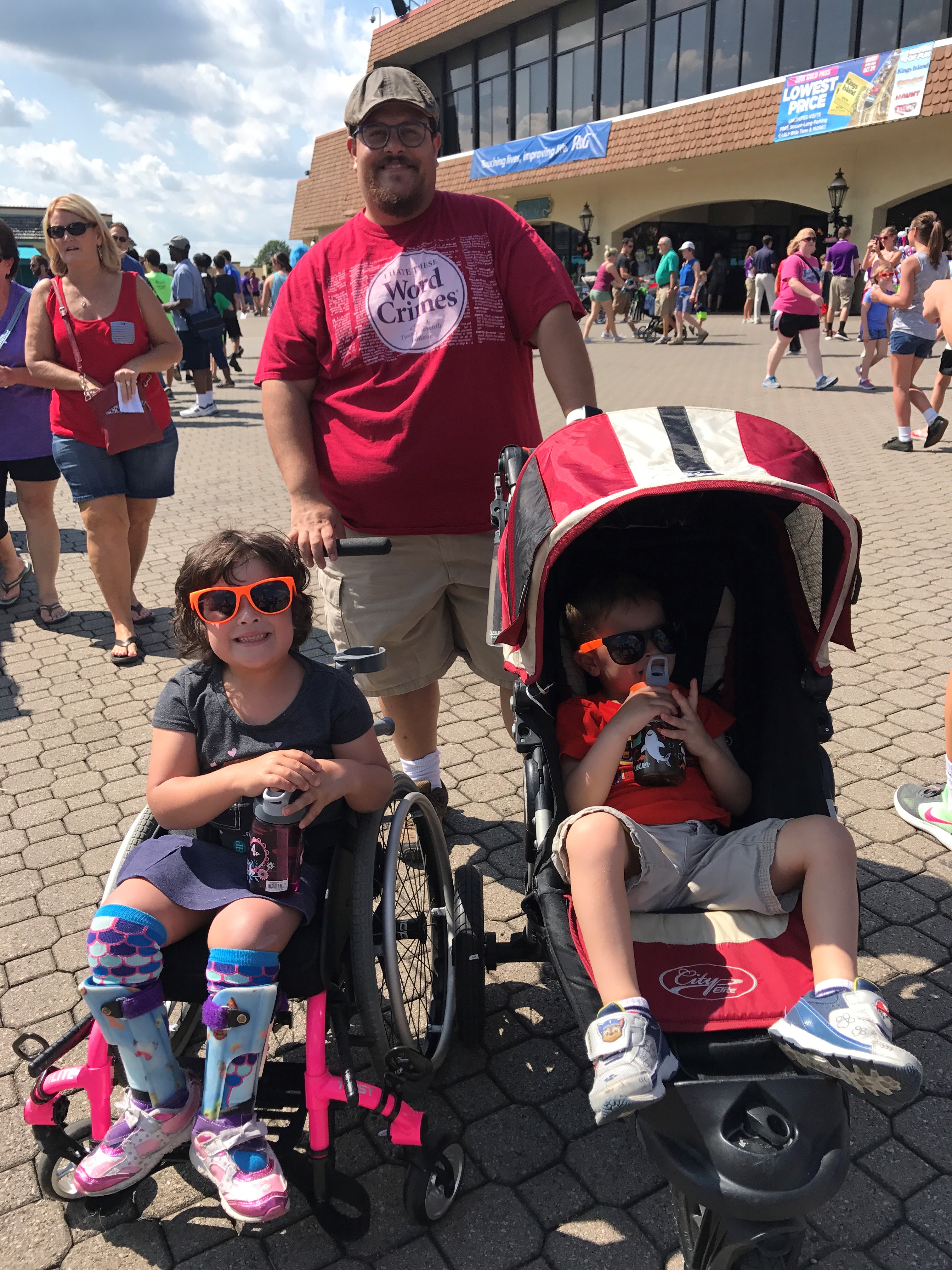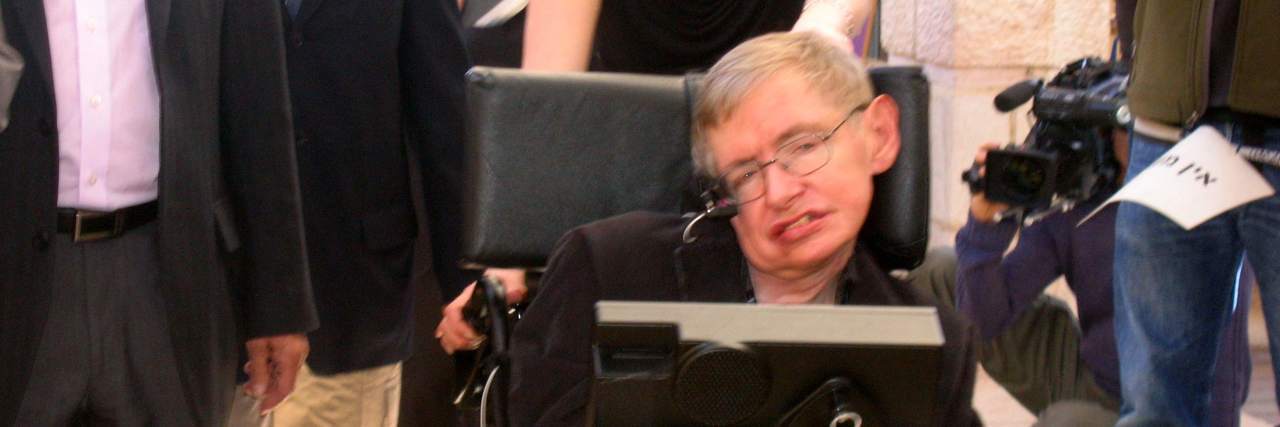As I watched the coverage of Stephen Hawking’s passing, it became clear it’s time to start a revolution on how we talk about people with disabilities and how we represent them in the media — big media and social media.
The way we talk about people “escaping” their disability and being “free” after they die is not OK.
When you say these things… when you share these things… you are basically telling people with disabilities their death is preferred over their life.
Think about that. Internalize it for a moment.
Is that a message you would want children with disabilities to hear? Is it the message you intend to send? Death giving them freedom? The assumption being their life is too terrible to bear?
No.
Let’s not teach children with a disability that their death is better than their life. Let’s not position them as being “confined” and “suffering” simply because they have a disability. Let’s not tell the world that once you have a disability, your life is worthless.
When someone with a disability dies, we should celebrate the life they lived, and mourn the loss we feel now they are gone. Look beyond the wheelchair. Look beyond the speech device. Look beyond the tools they use. How did they impact the world? How did they impact you? Let’s talk about that.
We need positive language. Active language.
What do I mean? Let me try to flip your thinking a bit:
A wheelchair equals freedom from being confined to a single location.
Example: Stephen Hawking was not confined to his wheelchair. His wheelchair gave him the freedom to not be confined to his bed.
If you don’t have a physical disability, when you describe yourself to people, do you start by talking about how you use your legs to walk places? Or do you talk about your interests, your talents, your family, your quirks etc.?
When I think about my daughter with spina bifida… she loves bright colors and rainbows, has mastered drawing Chinese dragons, and has a will as strong as a bull. She likes making people laugh, she has spunk, and she has a mountain of love to give. She pushes me and sometimes frustrates me with her stubbornly strong will, and she makes me super proud. She is competitive, she works hard, and it fills my soul to see how resilient she has already become in her young life. When she walks into a room, she fills it. And if she were no longer here – believe me – there would be a huge loss to mourn.
Her braces and crutches and wheelchair are tools that help her live her best life. They should not make you sad or cause you to gaze sorrowfully in the direction of her or others who use these types of equipment.
Do these things sometimes make life more challenging? Sure. However, these things are not the determining factor for who a person is, or for whether that person has a full and interesting life.

People with and without disabilities are mostly the same. We are all people. We laugh. We cry. We love. We have interests and quirks that make us ourselves. We have good times. We have bad times.
We may get places a different way.
We may communicate differently.
We may learn differently.
But those things do not define the person.
Look deeper. Don’t assume someone in a wheelchair’s life is what you think yours would be like if you lost the ability to use your legs. Walk over to someone with a disability and say hello. Invite them for coffee. Extend an invitation for a play date to the child in your kid’s class who lives with a disability. Take the time to get to know them and their families. I bet you’ll be pleasantly surprised at how much you have in common.

